From September 1st to 6th, 2018, the Fourth Biennial Conference of the Association of Critical Heritage Studies, held by Zhejiang University and the Association of Critical Heritage Studies (ACHS), organized by the Management Committee of Liangzhu Civilization, Hangzhou and the School of International Studies of Zhejiang University, was held in Hangzhou.
This biennial academic conference active in international heritage aims to promote the transformation and innovation of research and practice on cultural heritage, making heritage both a resource of cultural industries and a vehicle for social changes, dialogue among civilizations and the development of morality and humanity. After four years of preparation, the conference attracted about 500 representatives from more than 40 countries on five continents. As the most extensive international academic event in the history of Hangzhou and Zhejiang University, it is of great significance to Chinese heritage circle, to Hangzhou and to Zhejiang University as well.
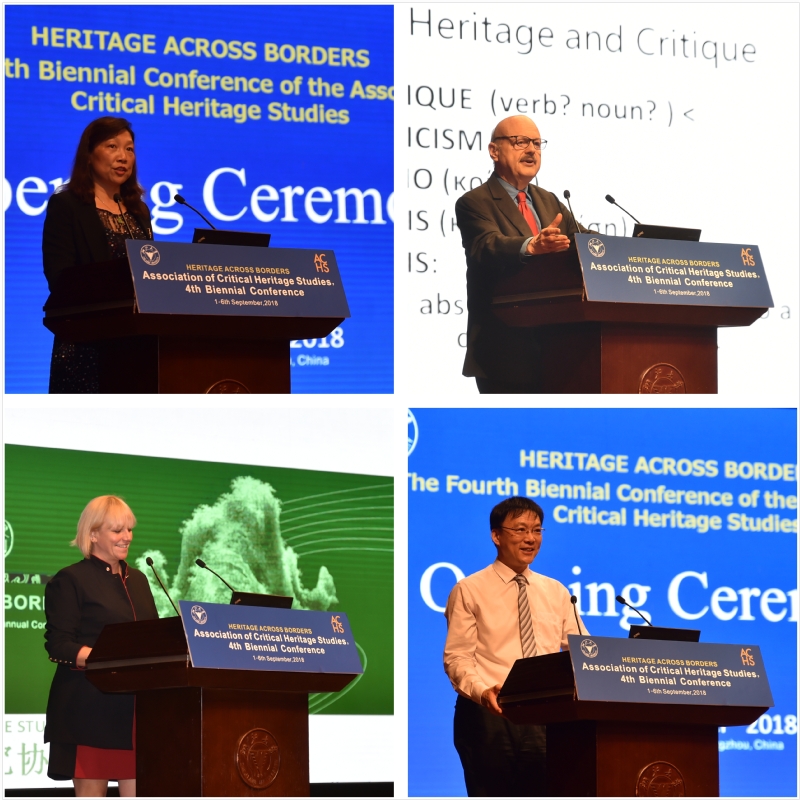
The conference had more than 560 speeches on 84 topics in 14 parallel sessions. The session “Internationalism and Heritage Across Borders” emphasized a series of challenges caused by cross-border cultural heritage in different countries and their solutions. The session “Heritage: Theory & Practice” dealt with the significance of cultural identity and heritage research brought about by leisure, entertainment and tourism in heritage research. The session “Tangible and Intangible Heritage” reconsidered the spiral relationship between the tangibles and intangibles of heritage. We advanced from overemphasizing tangible heritage to recognizing and valuing the intangible heritage, and to re-emphasizing the tangible properties of heritage. In fact, only by an integration of the tangibles and intangibles of cultural heritage can the values of cultural heritage to cultural, social and economic development be shown.
The session “Cross-Border Communication” put forward the broad connotation of “boundary resources” of heritage and their impact on individuals, ethnic minorities, countries and so on. Another key concept in the session was “participatory heritage”, underscoring the interaction between modern society and citizens. Scholars also paid attention to the influence of religious heritage on the political, economic, and cultural fields and explored the religious and cultural practices of Islam and Asian countries. Three seminars in this session combined religious and heritage research to expand the scope of heritage research.
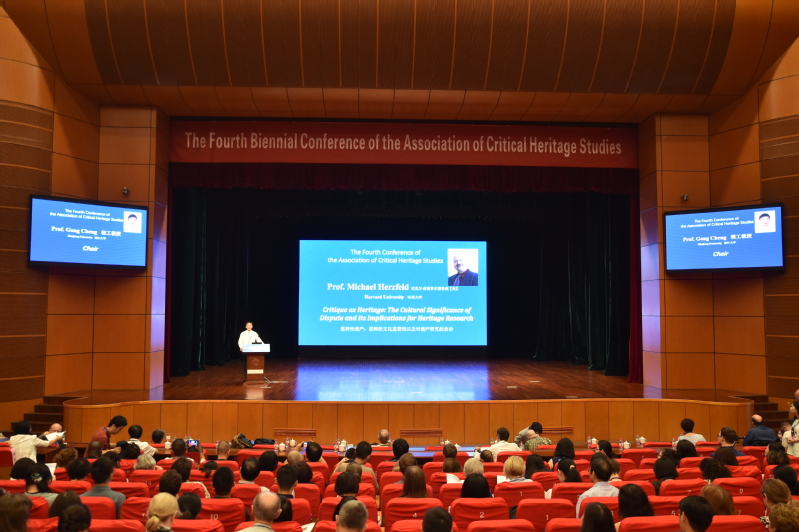
In the session “Governance, Law and Management”, starting from heritage protection, scholars discussed the management and protection mechanism of cultural heritage in different regions by taking several subjects, e.g. international organizations, government and heritage managing departments into account. The session “Memory, Time and Forgetting” offered a platform for scholars on memory and heritage studies to learn from each other, to explore the mystery of heritage construction and its impact on society in the past, at present and in the future.
In the session “Discipline, Methodology and Dialogue”, scholars realized that heritage research is inseparable from the monopolistic research system constructed by Western society for a long time. Scholars jointly explored the approaches of the critical heritage studies paradigm to offset the “Western-centric Mindset”.
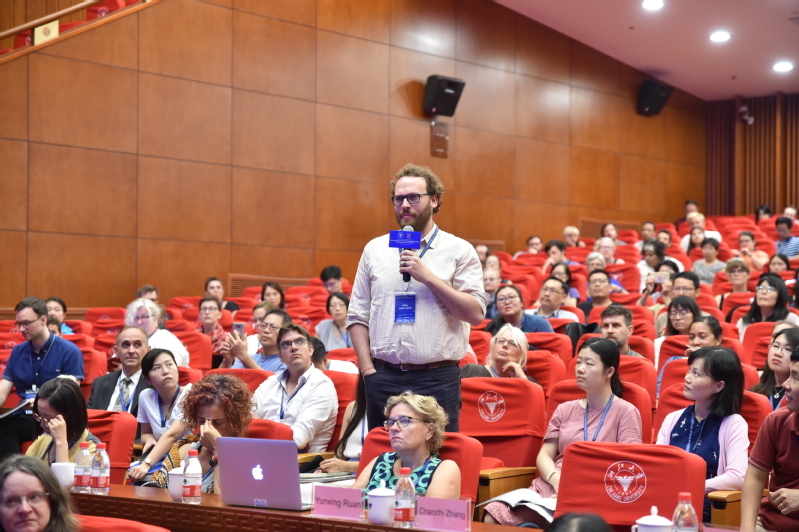
Scholars also discussed the practices of museums in various countries and regions. Museums bring about cross-border issues related to cultural communication, cultural identity and national construction. Based on geographical factors in the session “Nation, Region and Territory”, scholars discussed the core issues, e.g. China’s cultural heritage politics, environmental protection and heritage policies in the North and South polar regions, and European cultural heritage discourse systems. In the session “City and Landscape”, scholars discussed the changes in urban areas, cultural landscapes and their social impacts in the Industrial Revolution, Post-War Era, Post-Monopoly Period, and modernization.
Topics for discussion, in line with the frontiers of cultural heritage research, represent the inclusiveness of cultural heritage studies and contribute to transformation and innovation. Interdisciplinary studies and extensive topics fully demonstrated the challenges and opportunities faced by the academic community of cultural heritage in response to globalization and social development. It also showed a tendency of integrating humanities and social studies globally.
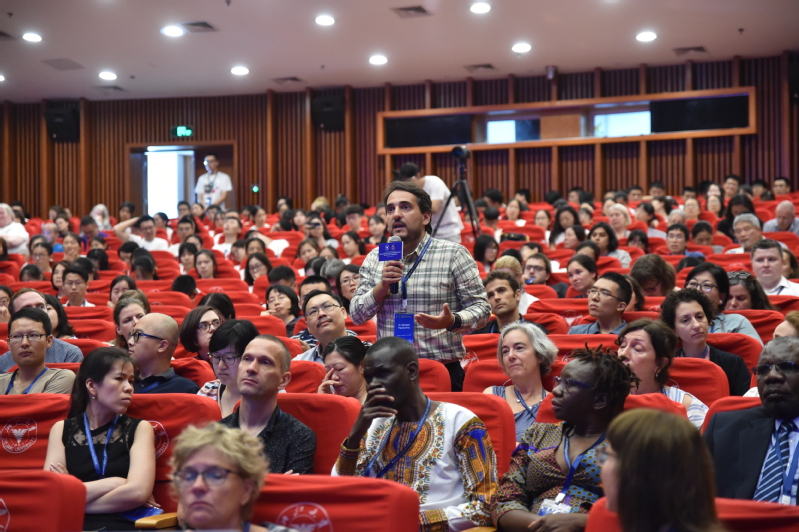
The conference is of great significance since the cultural heritage undertakings should play a more important role in inheriting traditional Chinese culture, cultivating and practicing the core values of socialism, promoting the Chinese culture to go abroad, upgrading the quality of Chinese people and social ethics. This conference is characterized by the following three points.
1. Cross-border integration highlights a community of shared future for mankind
The conference is themed “Heritage across boarders”. The frontier topics of global heritage studies, developing with cross-border practices, mean the boundaries among heritage forms (tangible and intangible heritage), civilizations, languages, countries, disciplines, industries, and regions (villages and cities) will be broken down. Multi-subject, multi-discourse, multi-field and multi-disciplinary exchanges, discussions and critical studies prompted scholars at home and abroad to shape the cultural diversity of heritage, its social values, forms of practice and ways of expression on a new platform.
2. Cross-disciplines cope with new challenges of cultural development
The conference is of strong interdisciplinary nature. The participants included scholars and delegates of different disciplines and industries, such as museology, archaeology, tangible and intangible cultural heritage, linguistics, semiotics, human geography, urban planning, landscape studies, anthropology, history, politics, history of art, ancient architecture, cultural memory, leisure tourism, public policy and law. “Interdisciplinary study” is both a research method and a research purpose.
3. Critical heritage studies develop rapidly in China
One of the highlights of this conference is providing a great platform for Chinese scholars and foreign scholars of Chinese origin to show themselves. A group of excellent Chinese scholars emerged during the conference. Chinese scholars focused on religious beliefs, crafts and dances, etc., the UNESCO’s intangible cultural heritage discourse in China’s localization, the dialogues between top-down government administration and bottom-up communities and the intangible cultural heritage construction between stakeholders. In the domestic research on heritage, the relationship among bearers of intangible cultural heritage, communities, experts, government and between intangible cultural heritage, commercialization and tourism are hot topics. The conference also gathered a group of Chinese scholars with similar interests, so the Chinese Branch of the Association of Critical Heritage Studies was studied.
The conference also received great support from Zhejiang University. Vice President He Lianzhen attended the opening ceremony and delivered a speech. She mentioned that “Heritage represents a nation’s cultural tradition, a city’s historical spirit and a university’s humanistic exploration”.
Leaders of the School of International Studies, staff of the departments and institutes of the SIS have been fully involved in the preparations for the conference since the summer vacation. More than 50 volunteers are providing services during the conference.
The Fourth Biennial Conference of the Association of Critical Heritage Studies promoted the local cooperation, international exchanges and academic cooperation of SIS. During the conference, we signed cooperation agreements with Management Committee of Liangzhu Civilization, Hangzhou and some well-known universities in North America and Europe.
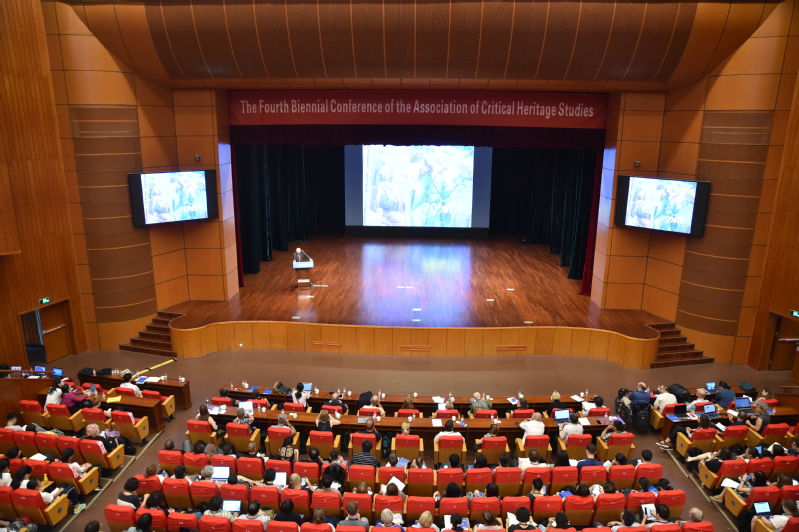
School of International Studies
September 8, 2018
Translated by Li Qian, Zhan Bingbing
Edited by Xu Xueying



